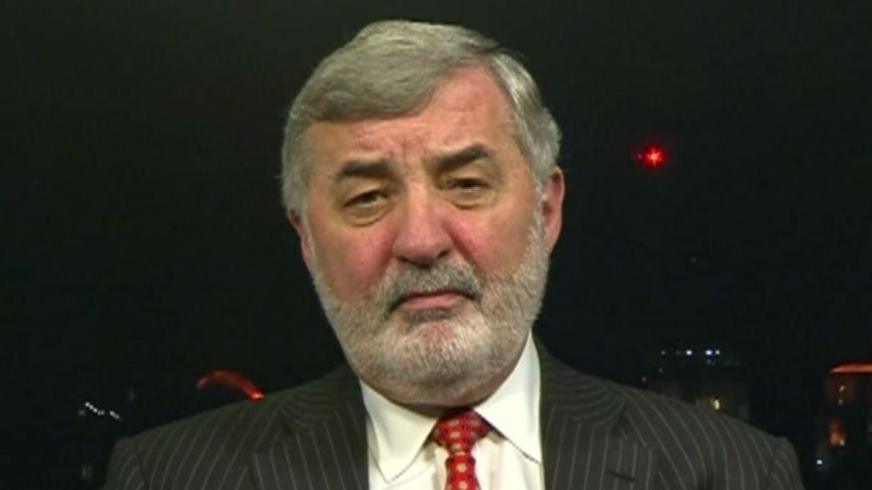What happens next in the Presbyterian Church?
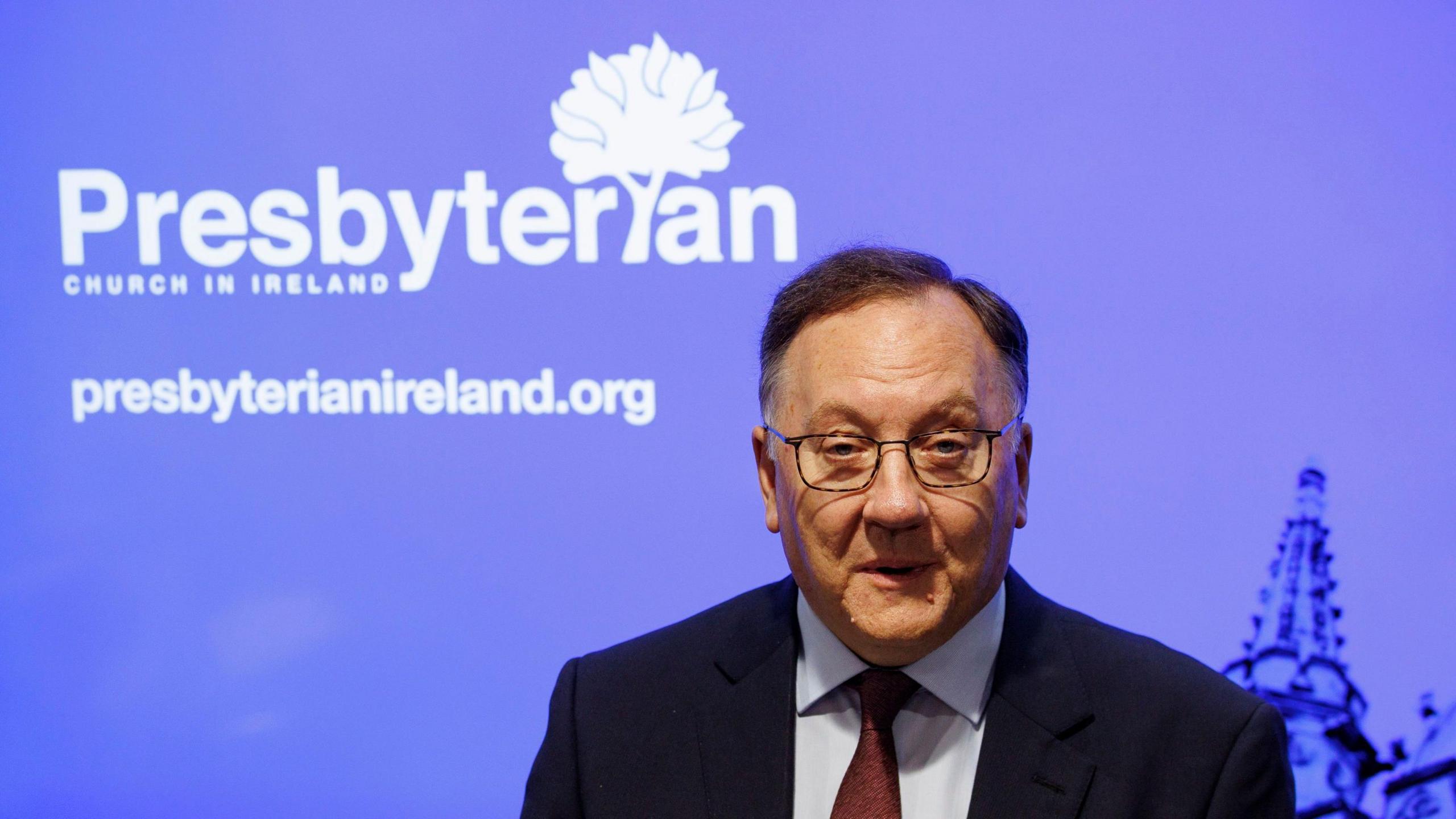
Rev Trevor Gribben resigned from his position as moderator of the Presbyterian Church in Ireland last week
- Published
The Presbyterian Church in Ireland (PCI) is now entering one of the most turbulent chapters in its 185-year history.
The sudden and unprecedented resignation of its moderator, Rev Trevor Gribben, has left the church grappling with the scale of its own safeguarding failures and facing an uncertain reckoning over what happens next.
On Sunday, a statement will be read to all congregations in the Presbyterian Church in Ireland on behalf of Rev Dr David Allen, the Acting Clerk of the General Assembly.
In it he said that a special meeting of the Church's General Assembly will be held in December.
What began as an internal investigation has grown into a crisis, shaking confidence in the church's governance, its leadership and its willingness to confront uncomfortable truths.
But as the questions have multiplied since Wednesday's press conference, church authorities have been unable or unwilling to provide answers.
Safeguarding functions fell short
PCI leaders have admitted that the church's central safeguarding functions had, for more than a decade, fallen far short of what was required.
Failures to refer concerns to statutory bodies, inconsistent record-keeping, and inadequate responses to safeguarding disclosures were all acknowledged.
Rev Gribben expressed his "deepest personal regret" and apologised unreservedly on behalf of the church.
But his decision to walk away, into an early retirement, without answering a single question from the media, has left many wondering how much more remains hidden.
What has fuelled the intensifying pressure is not simply the failures themselves, but the suggestion that earlier warnings were not taken seriously.
Ian Elliott, an independent safeguarding expert who was invited to advise the PCI as part of a previous review panel, said he raised concerns about a failing culture of safeguarding in 2023, but those concerns were effectively set aside.
The timeline of his claim also directly challenges the church's current narrative, that the scale of the issue only came to light in May 2025.
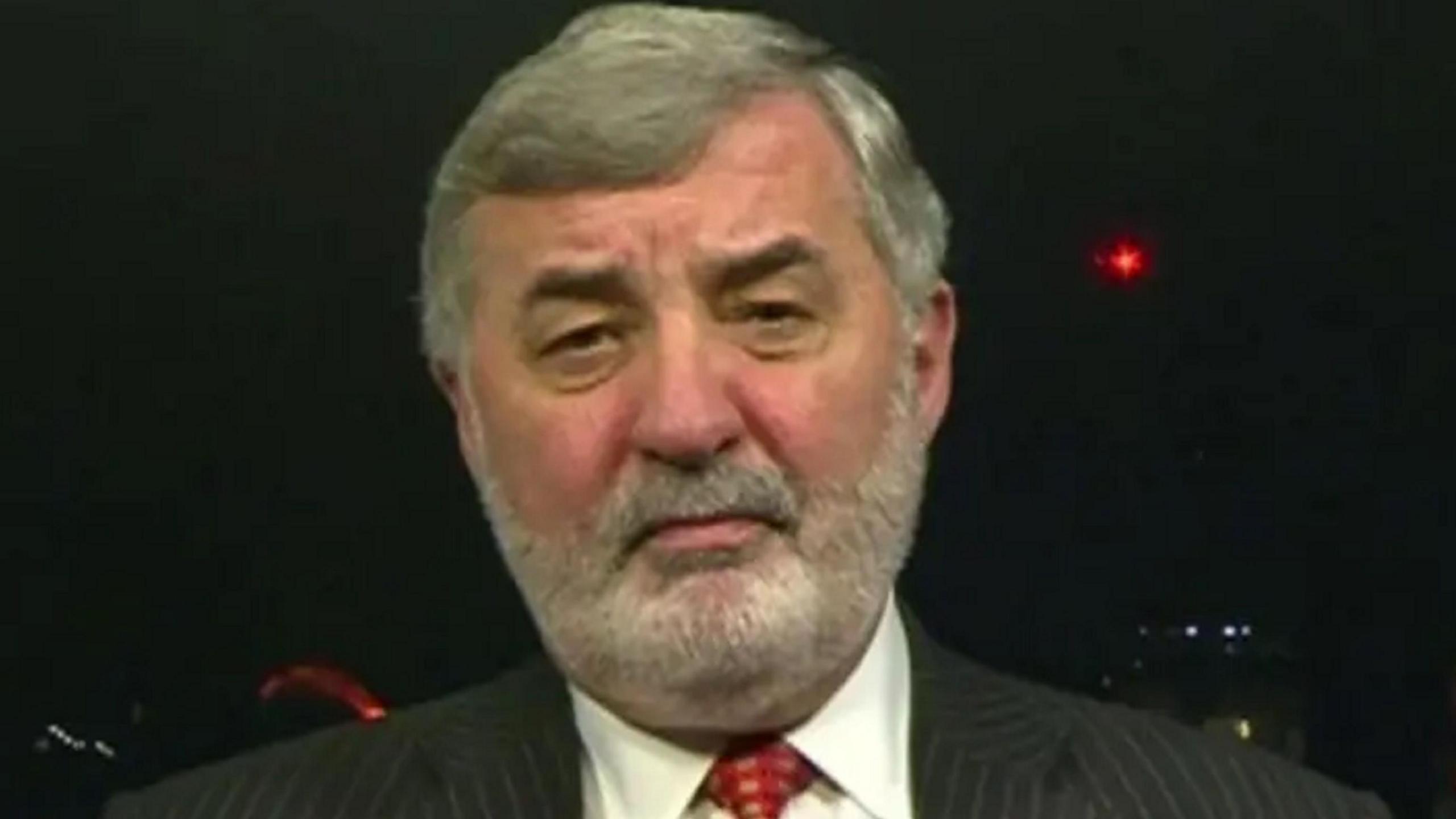
The Commission is also examining disclosures made by Lord Alderdice
Independent investigation demand
Voices within the PCI and beyond now argue that no internal process can command public confidence.
Several church ministers have taken to the airwaves this week demanding an independent investigation, while safeguarding experts describe this as a "watershed moment" that requires nothing less than a thorough, independent and external examination of how the church allowed these failures to persist for so long.
The Charity Commission for Northern Ireland has begun reviewing the Presbyterian Church in Ireland 's handling of its own internal report and has requested access to it, raising the possibility of regulatory intervention if the church's response is deemed insufficient.
The Commission is also examining disclosures made by Lord Alderdice in a dossier outlining concerns about alleged abuses of power within the church.
Church insiders and former members have spoken of a culture that resisted scrutiny and relied heavily on internal control.
Some describe a pattern of power being concentrated at the top, with secrecy becoming routine and transparency rare.
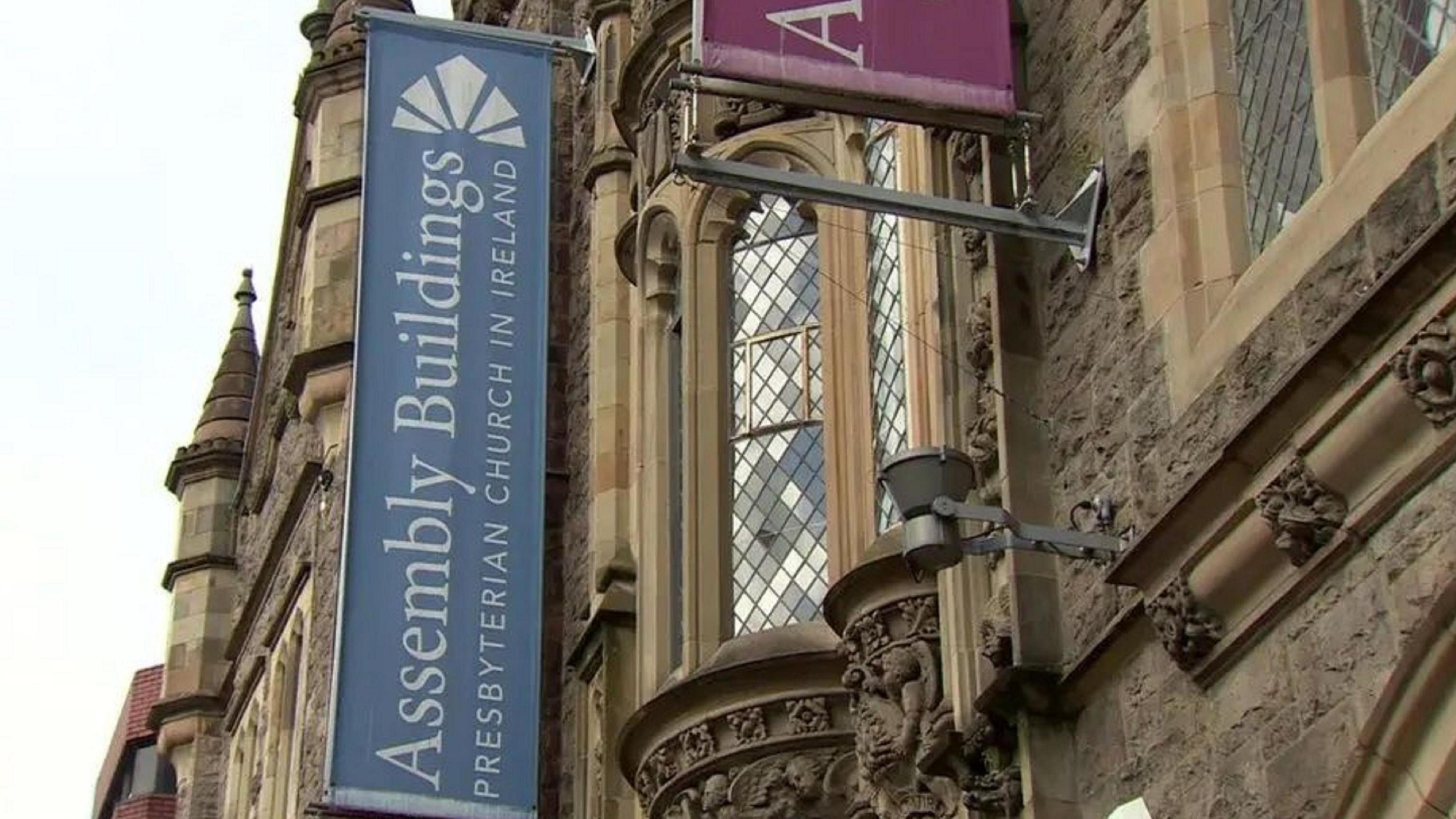
The Charity Commission for Northern Ireland has begun reviewing the Presbyterian Church in Ireland 's handling of its own internal report
Meanwhile, some survivors have begun sharing their experiences - accounts of feeling dismissed, ignored, or re-traumatised by systems meant to protect them.
For many, the resignation of the moderator is merely symbolic, and not in itself enough to rebuild trust.
What comes next for the Presbyterian Church in Ireland is likely to define its institutional future.
The pressure to publish a redacted version of its internal report is growing by the day, as are calls for a fully independent investigation, potentially even a public inquiry.
The Church now faces the painstaking task of rebuilding systems that failed for years: rewriting governance structures, establishing credible oversight, and embedding a culture that encourages reporting rather than avoids it.
A moment of reckoning
There is also growing pressure on the PCI to make a public statement releasing members of the church, and former employees, from Non-Disclosure Agreements (NDAs), which currently prevent them speaking publicly about their experiences of the church and its leadership.
The use of NDAs by a church is legal at present, but many safeguarding experts say these agreements amount to gagging orders which can be weaponised against whistle blowers and complainants.
The UK government is currently pursuing changes in the law that would ban the use of NDAs in cases of employees who have been subjected to harassment, abuse or discrimination in the workplace.
Ulster Unionist Party (UUP) MLA Doug Beattie has also tabled a motion in the Northern Ireland Assembly to debate the use and abuse of NDAs.
For the Presbyterian Church in Ireland the real test may not be the reforms it promises now, but whether it can open its doors, and its files, to the external scrutiny it has long resisted.
A moment of reckoning has arrived.
Whether the church meets it with transparency or retreat may determine not only its credibility, but its future shape and standing in the communities it serves.
Related topics
- Published3 days ago
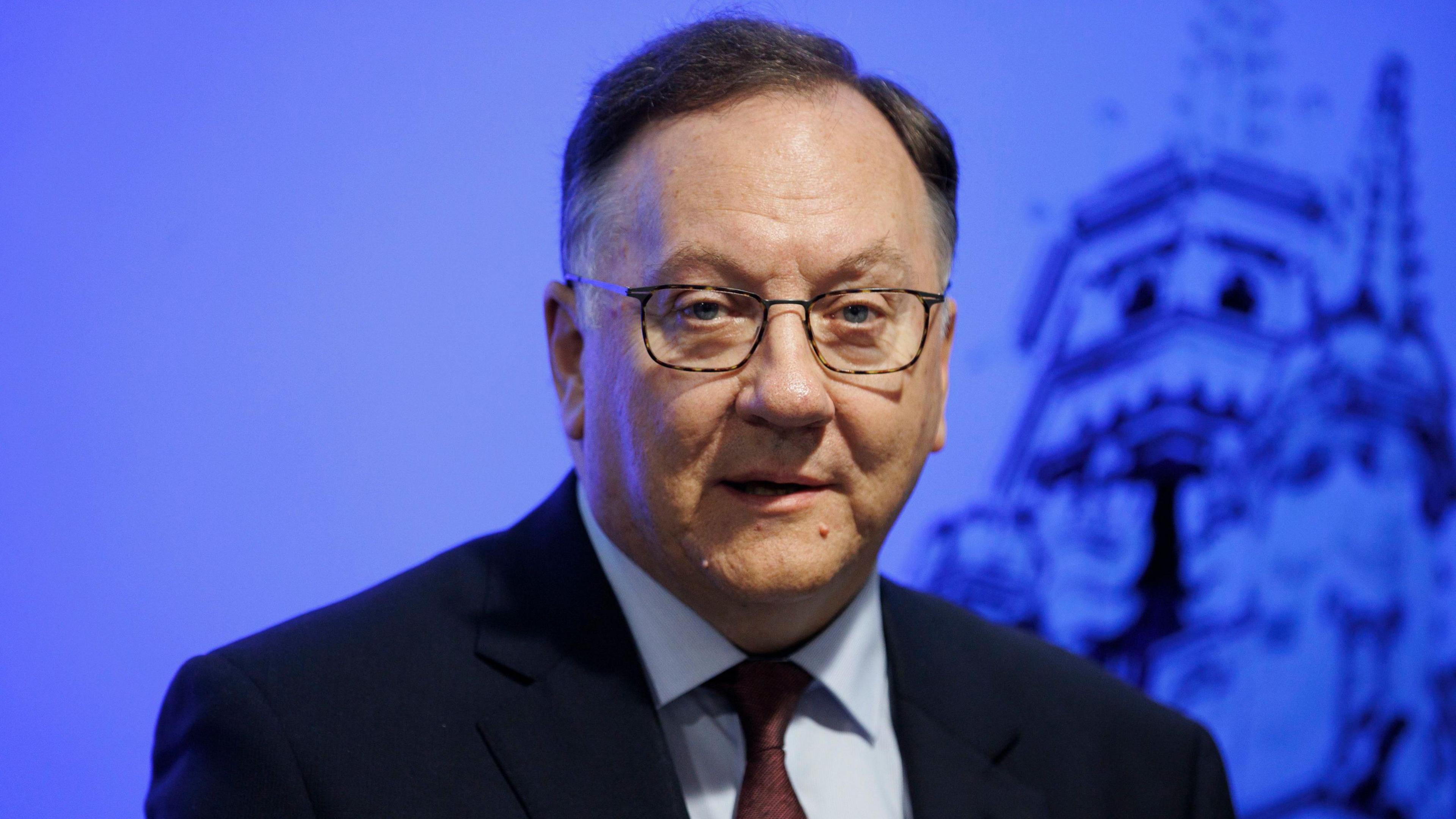
- Published19 August
